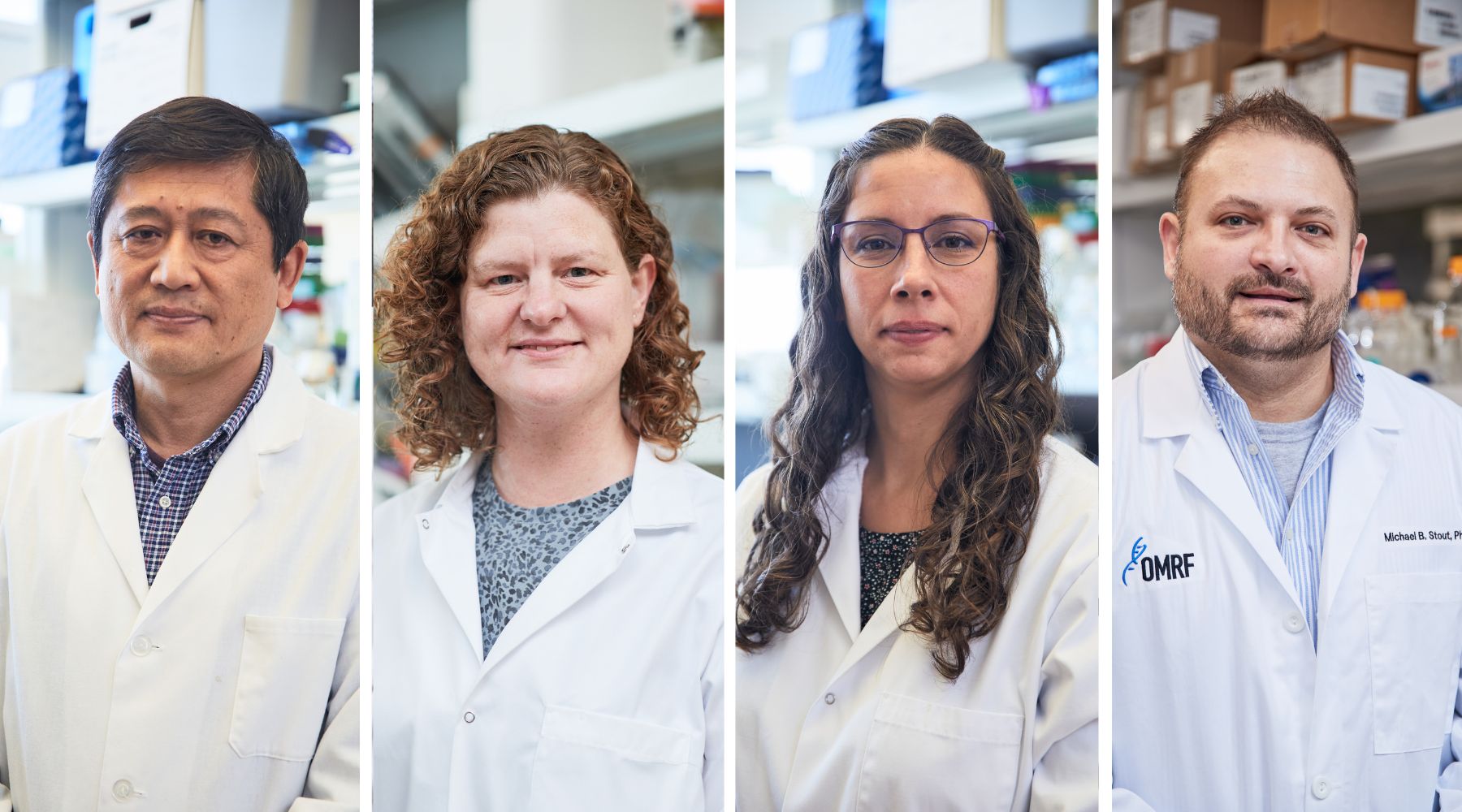People with diabetes are at risk of developing a progressive liver disease that at some point becomes irreversible, leaving organ transplant as the only option.
A new National Institutes of Health grant awarded to three Oklahoma Medical Research Foundation scientists could someday lead to an earlier and far less invasive treatment.
The $997,408 grant extends the focus of OMRF’s Center for Cellular Metabolism Research in Oklahoma, which was created by Lijun Xia, M.D., Ph.D., in 2021 through an NIH program that fosters collaboration and mentoring for junior researchers.
This new award combines the expertise of three OMRF scientists: Audrey Cleuren, Ph.D., Jacquelyn Gorman, Ph.D., and Michael Stout, Ph.D.
Together, they hope to understand cellular changes and interactions responsible for nonalcoholic fatty liver disease (NAFLD). This condition affects about 100 million Americans, according to the American Liver Foundation. In children, the condition has more than doubled during the last 20 years.
People with Type 2 diabetes are at greatest risk of developing NAFLD. The liver disease can be present for years before symptoms occur. It sometimes progresses to nonalcoholic steatohepatitis, where the liver begins to swell and harden.
“Early on it often can be arrested or slowed through diet and exercise, but at some point, it becomes a self-perpetuating disease of inflammation and fibrosis,” Cleuren said. “We hope to better understand how the cells are interacting at various stages of the disease.”
Gorman noted that most experimental drugs aimed at reversing these conditions have failed during clinical trials. “We and other scientists surmise this happened because those drugs targeted a single cell type rather than multiple cell types and their interactions,” she said.
During the one-year grant period, the scientists hope to attain sufficient data to warrant a longer, more in-depth study.
The grant, 3P20GM139763-04S1, was awarded by the National Institute of General Medical Sciences, a part of the NIH.
This award is part of the NIH’s Centers of Biomedical Research Excellence (COBRE) program, which helps junior scientists establish independent research programs, funds equipment and resources, and supports essential research cores.
Funding from the Oklahoma City-based Presbyterian Health Foundation and the Oklahoma Center for Adult Stem Cell Research provided equipment and/or preliminary research in support of the scientists’ NIH grant application.



